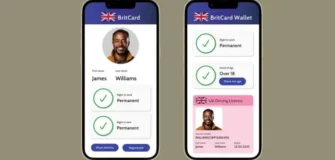Data Retention Policies Explained: How Long Should You Keep User Data?
Share

In an age when organizations collect more personal data than ever, one question often gets overlooked: how long should that data be kept?
Keeping data too long exposes your business to regulatory risk and cyber threats. Deleting it too early could disrupt operations or compliance obligations.
A well-defined data retention policy helps strike that delicate balance—keeping data only as long as necessary for legitimate, lawful, and business purposes.
What Is a Data Retention Policy?
A data retention policy is a documented guideline that defines:
- How long different types of data are stored;
- Why the data is retained;
- When and how it should be securely deleted or archived.
It ensures compliance with privacy laws such as the EU GDPR, Nigeria Data Protection Act (NDPA), California CCPA, and UK Data Protection Act 2018—all of which require organizations to avoid keeping data “longer than necessary.”
Why Data Retention Matters
- Legal Compliance – Laws like GDPR (Article 5(e)) and NDPA demand data minimization and limited storage duration.
- Security – The longer data is stored, the greater the exposure to breaches or leaks.
- Operational Efficiency – Unnecessary data clutters systems, slows processes, and increases costs.
- Trust and Transparency – Users increasingly expect organizations to delete their data responsibly once it’s no longer needed.
Global Legal Requirements on Data Retention
| Law/Region | Requirement Summary | Typical Retention Guidance |
|---|---|---|
| GDPR (EU) | Keep data only as long as needed for the purpose collected. | No fixed time; depends on processing purpose. |
| NDPA (Nigeria) | Data controllers must define retention period and delete or anonymize after use. | Based on lawful basis and purpose. |
| CCPA (California) | Must disclose retention period or criteria for retention in privacy notices. | As long as reasonably necessary. |
| HIPAA (USA) | Health data retention tied to recordkeeping laws (often 6 years). | 6–10 years depending on state/federal law. |
There’s no universal rule—retention periods depend on the data type, purpose, and regulatory environment.
Typical Data Retention Periods by Category
| Data Type | Typical Retention Duration | Rationale |
|---|---|---|
| Customer account data | Until account closure + 2 years | Legal, audit, or dispute resolution needs. |
| Employee records | 6 years after termination | Employment and tax compliance. |
| Financial/transactional data | 5–7 years | Accounting and tax audit laws. |
| Marketing data (consent-based) | Until withdrawal of consent | Complies with GDPR Article 7(3). |
| CCTV footage | 30–90 days | Security monitoring. |
| Health data | 6–10 years | Medical record retention laws. |
These are general guidelines—always check industry-specific regulations.
Key Principles of a Strong Data Retention Policy
- Purpose Limitation – Define why you collect each category of data.
- Retention Period Definition – Specify duration or criteria for deletion.
- Secure Storage and Disposal – Encrypt, anonymize, or shred data when no longer needed.
- Automated Enforcement – Use tools to flag or delete expired data automatically.
- Audit and Accountability – Maintain logs to prove compliance.
- User Rights Integration – Allow data subjects to request deletion (“Right to Erasure”).
How to Create a Data Retention Policy
Step 1: Inventory Your Data
List all types of personal and sensitive data you collect—emails, payment details, logs, analytics, etc.
Step 2: Define Legal and Business Requirements
Identify which laws apply (GDPR, NDPA, etc.) and how long each record type must be retained.
Step 3: Set Retention and Disposal Rules
For each data category, define the retention period and deletion method.
Step 4: Implement Automated Controls
Use compliance software or data governance tools (like OneTrust, Collibra, or BigID) to automatically apply deletion schedules.
Step 5: Review and Update Regularly
Revisit your policy annually or when business or legal requirements change.
Real-World Example: Google’s Auto-Delete Policy
In 2020, Google introduced auto-delete settings for user data such as location history and activity logs.
By default, new user data is automatically deleted after 18 months—balancing personalization with privacy.
This move reflects the growing global trend toward data minimization and responsible retention.
Common Mistakes Businesses Make
- Keeping “just in case” data forever
- Failing to document retention logic
- Not deleting backups or archives
- Overlooking employee and vendor data
- Ignoring user requests for deletion
Each of these errors increases compliance risk and potential penalties.
FAQs
1. How long can I keep personal data under GDPR?
Only as long as necessary for the purpose collected. After that, delete or anonymize it.
2. What happens if my company has no retention policy?
You risk non-compliance, higher breach exposure, and penalties under laws like GDPR or NDPA.
3. Do I need to tell users how long I keep their data?
Yes. Many privacy laws require disclosing retention periods or the criteria used in your privacy notice.
4. How should data be deleted securely?
Use certified methods such as cryptographic erasure, secure wipe, or shredding physical media.
Conclusion
A clear, well-executed data retention policy is essential to protect your business, respect privacy rights, and comply with global laws.
By keeping data only as long as necessary—and deleting it safely—you minimize risks and build trust with users.
Remember: Data retention is not about storage—it’s about responsibility.




































Leave a Reply